The Keys To Owning Your Own Home



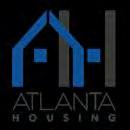













Homeownership is a key pillar of the American Dream, offering financial opportunity for consumers and enhancing economic security and stability for communities nationwide. Owning a home is also one of the most important pathways to wealth creation, providing families with a foundation for improving their financial position across generations.
At Wells Fargo, we believe deeply in the benefits of homeownership, and we’re proud of the fact that we’ve served more minority customers over the last decade than any other bank lender. We’re deeply focused on building on the strong foundation we’ve put in place to ensure that we not only maintain but also deepen our support for minority homeownership.
In April of 2022, the Company announced an expansion of its efforts to advance racial equity in homeownership. The
announcement included a $150 million investment in a new Special Purpose Credit Program for refinance customers, $60 million in Wealth Opportunities Restored Through Homeownership (WORTH) grants, and broadened partnerships with the National Urban League and UnidosUS.
In January 2023, Wells Fargo took our efforts to the next level by announcing a renewed strategic focus centered on serving bank customers and minority communities. The strategy includes an additional $100 million investment to advance racial equity in homeownership. We are working to reach more customers in underserved communities by leveraging our strong partnerships with the National Urban League, UnidosUS and other non-profit organizations, hiring additional mortgage consultants in communities of color, and expanding our Special Purpose Credit Program to include purchase customers.
As Wells Fargo’s new head of Home
Lending, I am humbled and honored to lead this team as we work to deliver for our customers and advance racial equity in homeownership. I’m proud to follow in the footsteps of our former head of Home Lending, Kristy Fercho, who was recently promoted to lead Diverse Segments, Representation & Inclusion across all of Wells Fargo. I’m also excited to work with the countless nonprofits, advocates, policymakers, and other stakeholders across the industry who share Wells Fargo’s deep belief in the benefits of homeownership. I believe that – together – we can bring the dream of homeownership closer to reality for all.
Kevin Reen Head of Wells Fargo Home Lending



BY KRISTY FERCHO HEAD OF DIVERSE SEGMENTS, REPRESENTATION & INCLUSION, WELLS FARGO
Owning a home is also one of the most important pathways to wealth creation, providing families with a foundation for improving their financial position across generations and building stronger communities in the process. Unfortunately, a significant gap between White, non-Hispanic, and minority homeownership rates has existed for decades and persists today.
Closing this gap is my personal passion and a core pillar of the work we’re doing at Wells Fargo. We’re proud of the actions we’ve taken to advance racial equity in homeownership, including a new Special Purpose Credit Program that has helped more than 2,000 families reduce their interest rate to 3.75% without extending their loan term. Wells Fargo remained the nation’s leading bank lender to Black and Hispanic families in 2022, and we’re eager to build on this strong foundation.
We also know that more work remains, and that no single entity – no matter how large – can address systemic barriers to minority homeownership alone. Common pursuit of shared goals and meaningful collaboration across the housing ecosystem are essential to driving lasting impact. We are committed to continuing to play a leading role

in the effort to advance racial equity in homeownership and are excited about the work that’s underway.
In the last year alone, we’ve launched substantial initiatives that we believe can help drive real progress in closing the racial wealth gap. For example, Wells Fargo and the T.D. Jakes Group just announced a strategic partnership to drive economic vitality and inclusivity in communities across America. Over the next 10 years, the partnership between our organizations could result in up to $1 billion in capital and financing from Wells Fargo, as well as grants
from the Wells Fargo Foundation, with the goal of revitalizing neighborhoods, fostering economic opportunity, and creating long-term change in communities most in need.
In February, Wells Fargo announced a $50 million grant to the largest civil rights and social justice organization in the United States, the NAACP, to support its continued efforts to advance racial equity in America. I’m proud to say that the grant is the single largest donation the civil rights organization has ever received. Wells Fargo also announced a re-
fined strategy for its Home Lending business – including a deeper focus on serving minority customers. In addition to expanding our Special Purpose Credit Program to purchase customers and hiring more Home Mortgage Consultants in minority communities, the strategy also deepened our partnerships with groups like the National Urban League and UnidosUS.
These announcements build on extensive work that’s already underway across Wells Fargo to advance racial equity in homeownership – including the $60 million “Wealth Opportunities Restored Through Homeownership” (WORTH) program, a diverse appraiser apprenticeship program launched in partnership with the National Urban League, and the $40 million Growing Diverse Housing Developers grant initiative focused on expanding the growth and success of real estate developers of color.
Individual actions to build a more equitable housing system play a crucial role in driving progress. The most powerful path to progress, though, lies in the actions we take together to make the dream of homeownership more accessible and sustainable for all.

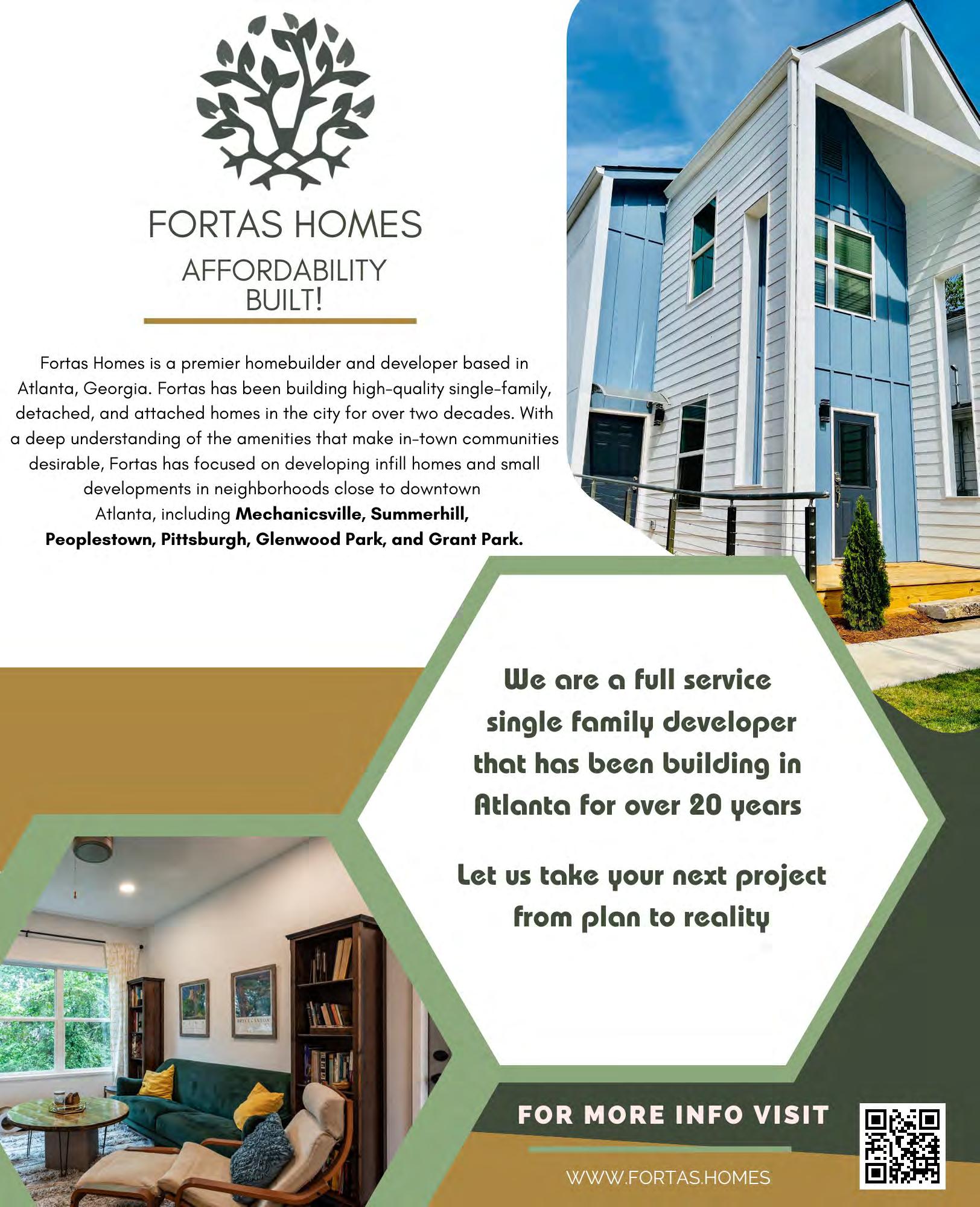
Whether you’re buying a house or need a hand to stay in your home, you might be eligible for one or more assistance programs.
BY JENNIFER BLOCK MARTIN
Wherever you are on your homeowning journey, these programs provide assistance with buying a home or paying your mortgage and other housing costs. And you may be eligible for more than one program.
Wells Fargo offers and administers programs to help owners like you buy and stay in their homes, accumulate savings, and pass down wealth to future generations.
1. Dream. Plan. Home.SM closing cost credit
Closing costs, such as appraisal fees, processing fees, title-related fees, recording fees, and city, county, or state tax stamps, are a significant amount of cash often overlooked by buyers. The Wells Fargo Dream. Plan. Home.SM closing cost credit provides up to $5,000 toward nonrecurring closing costs for borrowers with a combined in-
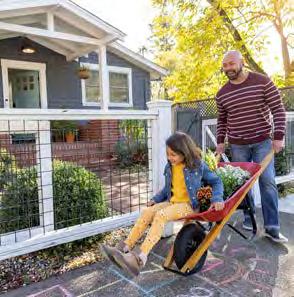
come of up to 80% of the area median income in select areas across the U.S. This credit may be combined with other Wells Fargo down payment assistance programs and gift funds.
Wells Fargo Home Mortgage consultants are available to discuss your options with you. Call 1-877937-9357 for more information.
2. Homeowner Assistance Fund
If you’re facing challenges from
the COVID-19 pandemic, you may want to look into the Homeowner Assistance Fund, or HAF, a federal program to help people catch up on past-due mortgage payments and utility bills, and pay other housing costs, such as homeowners association fees or insurance. The benefits are offered by most states and vary by state, and in most states, the money from HAF is available as a grant, so you don’t have to pay it back. For example, the lifetime cap for HAF assistance in Washington, D.C., is a $120,000 grant per household, while the state of Georgia offers a grant up to $50,000. However, some states may require the money to be repaid under some circumstances, such as if you sell your home before a specified date.
American Indian, Alaska Native, and Native Hawaiian homeowners can receive funds in addition to their state’s program. This fund is
As the leading large bank lender to African Americans Wells Fargo understands that our strength comes from working together across the country to achieve racial equity in homeownership.
Our close collaboration with prominent African American civil rights organizations, real estate trade groups, and housing counseling agencies helps bring home buying information and resources to more communities.
At Wells Fargo we also continue to optimize our teams to better serve you and help you create a home buying journey that is right for you and your family.
Scan to learn more about our Home Lending Priorities
not just for members who live on tribal land; some services are available for members of a tribe living outside a reservation. Visit wellsfargo.com/homeownerassistancefund for more details.
3. Union Plus Mortgage Program
If you’re an active or retired union member or an eligible family member, you may be able to take advantage of the Union Plus mortgage program, which provides special home financing options, benefits, and interest-free mortgage assistance loans or grants in the event you experience an unexpected loss of income. Call 1-866-8074154 or visit mortgage.wf.com/ unionplus for more information.
4.Housing counseling agencies
Do you feel intimidated by the homebuying process and don’t know where to start? Or do you al-
ready own a home and are experiencing financial distress? You don’t have to go it alone. You can talk with a U.S. Department of Housing and Urban Development housing counselor in your area to get free counseling assistance related to buying or keeping your home. Visit hud.gov/housingcounseling or call 1-800-569-4287
Not sure how much house you can afford? An online mortgage affordability calculator can give you an estimated home price and monthly mortgage payment based on your income, monthly debt, down payment, and location. Go to wellsfargo.com/mortgage/ home-affordability-calculator



ATTENTION BUILDERS, LENDERS, REALTORS, AND HOME-BUYING ECO-SYSTEMS PROFESSIONALS AND ORGANIZATIONS!

Join the HUB Vendor Program today and enjoy a multitude of benefits.
Networking opportunities with industry professionals
Increased visibility among a relevant audience
Enhanced credibility and trust with customers
Marketing and promotion through the platform
Access to resources and events for business development Customer Support services provided by the platform
The HUB is a one-stop portal that offers unparalleled experiences to communities of color in Atlanta. As a member of our elite network, you will have the opportunity to help empower these communities and provide them with the best homeownership services possible.
The HUB Representative
Sr.
Step up and be a part of the revolutionary Homeownership Urban Blueprint (HUB) Network. P: 404-659-1150




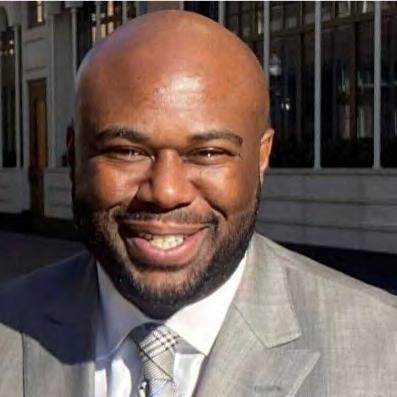
Rob Lockett Team Leader, National Housing Stability, Rocket Community Fund
Whether you saw one of their recent commercials with Atlanta TV star and media personality Rashan Ali or are a client yourself, the odds are good that you’ve heard of Rocket Mortgage, one of the nation’s largest home lenders and a part of Rocket Companies (NYSE: RKT). Thanks to Rocket Mortgage and its commitment to simplifying the complex mortgage process, millions of Americans enjoy the financial security and stability of home ownership.
But that’s not all the Detroit-based company is doing to connect Americans to housing. The Rocket Community Fund, the philanthropic partner of Rocket Companies, has made millions of dollars in community investments to simplify the inequitable systems preventing Americans from accessing stable, healthy housing – and that includes Atlanta!
Since December 2022, the Rocket Community Fund has invested nearly $2 million into Atlanta-based initiatives. Learn more about these investments from Rob Lockett, Team Leader for National Housing Stability at the Rocket Community Fund, who is also an Atlanta native.
Q: How is the Rocket Community Fund helping Atlanta residents prepare for homeownership?
The Rocket Community Fund is dedicated to dismantling systems which prevent equitable access to homeownership. We know that, historically, the housing industry has strategically discouraged Black people, and other racial minority groups, from attaining homeownership. This is a huge barrier to building wealth and ensuring equitable access to opportunity.
In Atlanta, we are working to address this through a number of partnerships and programs with service organizations who understand these issues and are laser-focused on fixing them. A great example is the Rocket Wealth Accelerator program, which we manage locally in partnership with LISC Atlanta and the Atlanta Center for Self Sufficiency.
The Rocket Wealth Accelerator, which is also active in Detroit, Cleveland and Milwaukee, was created to strengthen LISC’s existing Financial Opportunity Center® initiative. Through the program, nonprofits like the Atlanta Center for Self Sufficiency are able to provide clients with one-on-one personal financial coaching focused on understanding and supporting their goals.
Even better, the program provides participants with matching dollars for their savings plans. These grants include up to $500 for people with large-dollar goals such as purchasing a home or vehicle, and up to $300 for those with short-term or emergency savings goals.
We also have invested in the production of affordable single-family homes in the Atlanta area through our support for the Atlanta Neighborhood
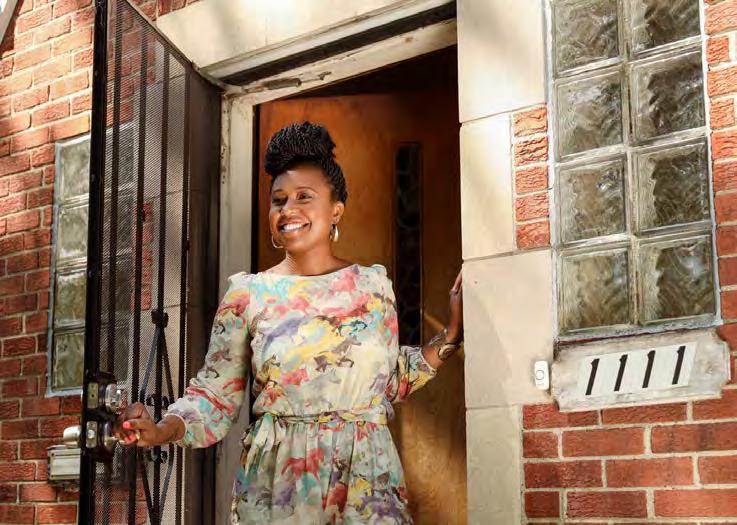
Development Partnership’s (ANDP) Closing the Gap plan to create 2,000 units of affordable housing by 2025. This allows us to affect both sides of the economic equation – increasing supply of affordable housing and ensuring residents are prepared to purchase when the time is right.
Q: How does Rocket Community Fund engage with the community?
At the Rocket Community Fund, we believe strongly in the power of resident-informed data. We don’t assume we know the problems that need to be fixed, so we work with residents from the community to get real information so we can build the most effective programs possible. That’s why our Neighbor to Neighbor program is so important.
Neighbor to Neighbor is the Rocket Community Fund’s flagship community outreach and engagement program, which seeks to connect community residents directly with valuable resources while simultaneously collecting data to understand where there are gaps in housing stability services. In Atlanta, we’re very proud
to be working with the Partnership for Southern Equity and Atlanta BeltLine Partnership to execute our program. Over the last several months, paid canvassers have been working across 20 Atlanta neighborhoods to connect 20,000 residents with information on how to protect their homes from tax foreclosure, get access to legal services, receive financial counseling and more.
Q: Why are you personally passionate about supporting Atlanta?
Though I live in Detroit now, I’m originally from SW Atlanta and have strong ties to the community here. I actually grew up as a City Hall kid. My mother is retired from the City of Atlanta, so that legacy of engagement between institutions and residents was instilled in me at a very young age. I’m very proud to be able to lead the Rocket Community Fund’s work in Atlanta, and other cities across the country.

Local Initiatives Support Corporation (LISC) and the Rocket Community Fund have teamed up to provide Atlanta residents with the resources they need to get on the fast track to financial stability.
The Rocket Wealth Accelerator program provides one-to-one matching dollars for participants’ savings plans. You can get up to $500 for large-dollar goals such as purchasing a home or vehicle, and up to $300 for short-term goals or to build emergency savings. Plus, the Rocket Wealth Accelerator Program provides participants with access to financial coaches to help you build credit and grow long-term wealth.

Find out more by scanning the QR Code or connect with LISC Atlanta’s Financial Opportunity Center® partner: the Atlanta Center for Self-Sufficiency at www.AtlantaCSS.org.

L. ADAMS, JR.
MBA PRESIDENT & CEO
According to the Urban Institute homeownership between Black and White families in the US is bigger today than it was when it was legal to refuse to sell someone a home because of the color of their skin. In 1960, there was a 27-point gap between Black homeownership (38%) and White homeownership (65%). Today, the gap is even wider. The gains made in the three decades after the 1968 Fair Housing Act were erased after 2000, as forces within and beyond the housing market aligned to reduce the Black homeownership rate.
The “Quest Black” Homeownership Initiative is one of the first ever Black wealth Initia-
tive in the country, helping to build and grow a proven pathway for wealth creation and economic mobility in the Black community that could serve as a national model for addressing the racial wealth gap. Quest CDC in partnership with Quest Ventures introduces the “Quest Black” Homeownership Fund pioneering an innovative trifecta of land-trust, life insurance and down-payment product that removes the capital barriers faced by Black and African American families in buying their first home, which puts them on a promising path toward financial well-being and wealth creation.
The Quest Black Homeownership Fund offers Black and African American first-time home-buyers access to no-interest down-payment funds that can be used toward the purchase of a new home. Upon selling or refinancing, homebuyers then return their down-payment plus 5% of the home’s appreciation value to support the next homebuyer on their journey to wealth and ensure the Home-
ownership Fund can continue to operate.
To be eligible for the Quest Black Homeownership Fund, Black and African American first-time home-buyers must attend a first-time home-buyer program and use their home as their primary residence; have a family income of $150,000 or less per year; and receive a conventional mortgage loan through participating lenders In addition the borrower would be required to have at least 3 months mortgage payment saving, the Homeownership Fund provides up to $100,000 in down-payment assistance;
• First-time Black or African American Homebuyer
• Income less than 140% of their area median income or combine household income $150,000 or less.
• Have completed a first-time homebuyer course through a participating lender.
• The home is your primary residence.
• Have saved at least 3 months of mortgage payments in the form of shared equity.
This pilot project will be Westside’s first permanently affordable housing option demonstration. Quest has acquired land on the Westside through a contract with Atlanta’s Housing to develop 12 newly constructed modular homes for residents at 80% AMI and above. In partnership with Impact Housing, we will use modular housing methods to decrease the environmental impact on the neighborhood and increase construction efficiency. Modular housing is a relatively new product and contributes roughly 10% less cost due to savings from bulk purchasing, labor costs, building materials and time savings.
“For decades Homeownership has been marketed as one of the single most important assets to build wealth, but with staggering barriers to access one must ask, how we change access points and provide new strategies that support the home covenant structures dictating the reproduction for each homeowner understanding this type of asset as a long-term investment and wealth building tool” say Leonard L. Adams Jr., President and CEO


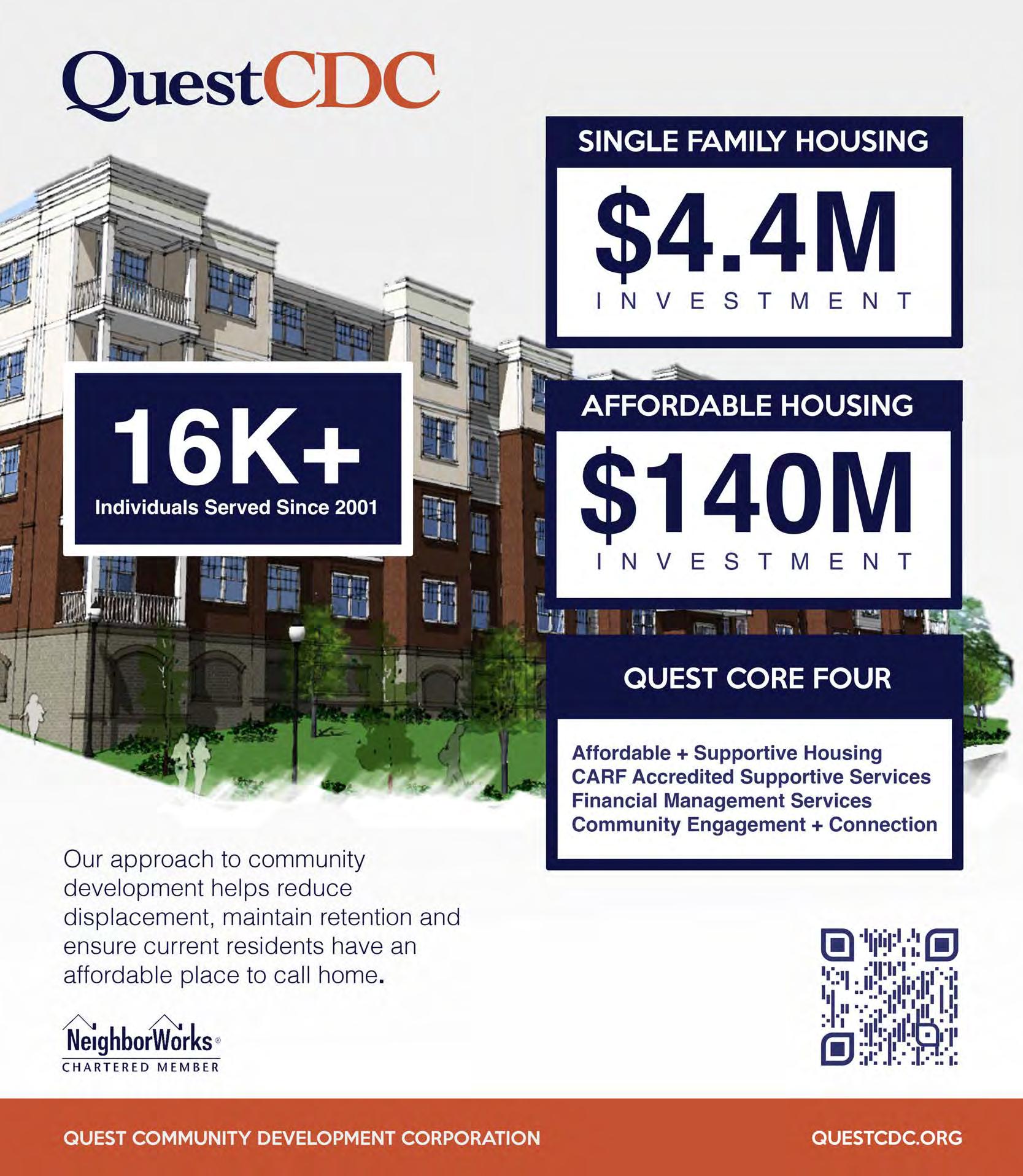

BY PAT EVANS DIRECTOR, HOMEOWNERSHIP PROGRAM
Homeownership represents the very essence of the American Dream, providing individuals and families with stability, financial security, and a sense of pride. Unfortunately, for many aspiring homeowners, the hurdle of amassing the necessary down payment funds proves insurmountable. To counter this challenge, in 2005 Atlanta Housing (AH) established its Down Payment Assistance Program (DPA), an initiative designed to bridge the gap and make homeownership a reality for eligible first-time homebuyers. Thanks to the invaluable assistance provided by the DPA Program, over 1,600 families have achieved their dreams of owning a home.
Our DPA Program provides subsidy assistance to low-to-moderate-income individ-


uals and families who meet the program’s eligibility requirements. Eligible participants of the program receive funds up to $25,000, which can be allocated toward the down payment, closing costs, and other associated expenses involved in purchasing a home. Working with local lenders, Atlanta Housing ensures a seamless integration of the DPA funds into the homebuying process. This strategic partnership enables qualified buyers to access competitive loan products and favorable terms, enhancing their purchasing power.
Over the past five years alone, Atlanta Housing has invested more than $28.6 million in down payment assistance, benefiting first-time homebuyers like Brion Grady. Brion credits her successful journey to homeownership to the invaluable guidance provided to her by her lender and mortgage loan officer, and her AH Homeownership Program Specialist. The $20,000 she received from Atlanta Housing's Down Payment Assistance Program empowered her to remain a vital part of her
beloved community and to begin acquiring generational wealth.
“Atlanta Housing gave me the confidence to know that I deserve homeownership, and I deserve prosperity in Atlanta, just like everyone else,” shared Brion, emphasizing the transformative impact of the program.
Atlanta Housing's Down Payment Assistance Program brings aspiring homeowners one step closer to a stronger future for themselves and their families. To learn more about eligibility requirements and participating lenders, please visit https:// atlantahousing.org/housing-programs/ down-payment-assistance.





BY JANELLE WARD
Juanetta Brown-Vasquez walks the grounds of the Reserve at South River Gardens everyday. Despite the new 69-home subdivision only being half-full with residents, she knows the people who will be filling the lots with homes still being built. While walking down the center of the street she pointed at the house and described the future residents by name. Most of them are millennials by her count.
“More and more everyday,” BrownVasquez, the on-site advisor for new homes for Rockhaven Homes, an Atlanta-based home builder, said of homeowners between the ages of 27 to 42 that are buying homes at Reserve at South River Gardens.
According to a new study conducted by RentCafe, a nationwide apartment listing service, the majority of the Atlanta metro area’s millennial population has achieved homeownership.
Approximately 60% of the city’s millennials now own homes, with the generation seeing an increase in homeownership of about 129% over
the past five years. This growth ranks the Atlanta metro area 21st in positive homeownership change among millennials, trailing behind other major cities and Top-30 metro areas like Las Vegas, Milwaukee, Wisconsin and Portland, Oregon.
Asked why she thinks there are so many millennial homebuyers in Atlanta, Brown-Vasquez said, “It’s because they don’t want to rent.”
The average rent for a two-bedroom apartment in Atlanta is just under $1,900 per month, according to RentCafe.
Trending for a good reason Atlanta’s data follows the national trend of millennial homeownership. Just over half of millennials nationwide have reached the milestone, while the Atlanta metro area has witnessed a near 30% decrease in millennial renters since 2017.
Millennials, whose ages range from 27 to 42 in 2023, have long struggled to obtain homeownership, being the generation bearing the brunt of the financial impact of the 2008 recession.
According to a report from the Bureau of Labor Statistics, the crisis in-
fluenced many from the generation, who were in their late teens or 20s at the time, to delay major milestones in life, like marriage, starting a family and buying a house. Millennials also accumulated greater student loan debt on average compared to generations before, while entering a workforce lacking entry-level opportunities for recent college graduates.
In contrast, RentCafe states that millennials across the country witnessed record levels of financial prosperity since 2017, prompting them to pursue and obtain homeownership later in life. The study credits three external factors for propelling the generation to a state of greater financial security, starting with higher wages.
Banner year financially
Millennials earned a median income of $108,000 last year, the highest median income in the generation’s history. This jump in pay also served as the highest income increase for any generation over the course of the past five years, approaching 50%.
Additionally, many millennials moved in with family for the most
financially-devastating months of the pandemic, thus saving money on what would have been spent on lofty rent and utility payments had they continued living alone or with roommates. Some from the age group also received assistance from parents or extended family in making a down payment on a home.
Generation Z is keeping pace
Another age group in which RentCafe noticed considerable change across the board is Generation Z, or Zoomers, who are now reaching the ideal age to begin renting property or even purchasing their first home. According to the study, Atlanta witnessed a spike in rentership among members of Gen Z, with the metro area seeing an increase upwards of 250% since 2017. Gen Z was the only generation to see an increase in renters over the past five years.
Interestingly, Generation Z also made an impact nationwide in terms of homeownership, with the group sparking a 455% increase in the category. This surge was reflected in Atlanta, as well, as the city saw an increase in Gen Z homeownership of 254%.
Despite impressive levels of growth, the millennial generation is still bested by baby boomers in the city, who, at approximately 81%, have the highest rate of homeownership for their respective generation in the metro Atlanta area.
Brown-Vasquez wrapped orange and blue balloons around the pillars in front of a home that was recently purchased by a millennial couple. She explained that they were in the military and having a baby in a couple months. “There are IT techs, medical personnel, city employees, active military and they are putting like 15% down on their homes,” she said.
Atlanta’s millennials are buying homes at the highest rate of homeownership for their respective generation. Brown-Vasquez recalled a new homeowner, a young, single male, telling her he moved back in with his mother in order to save six months of salary for his down payment.
“It’s going to be another three months until his home is built so he’ll have even more time to save,” she said.
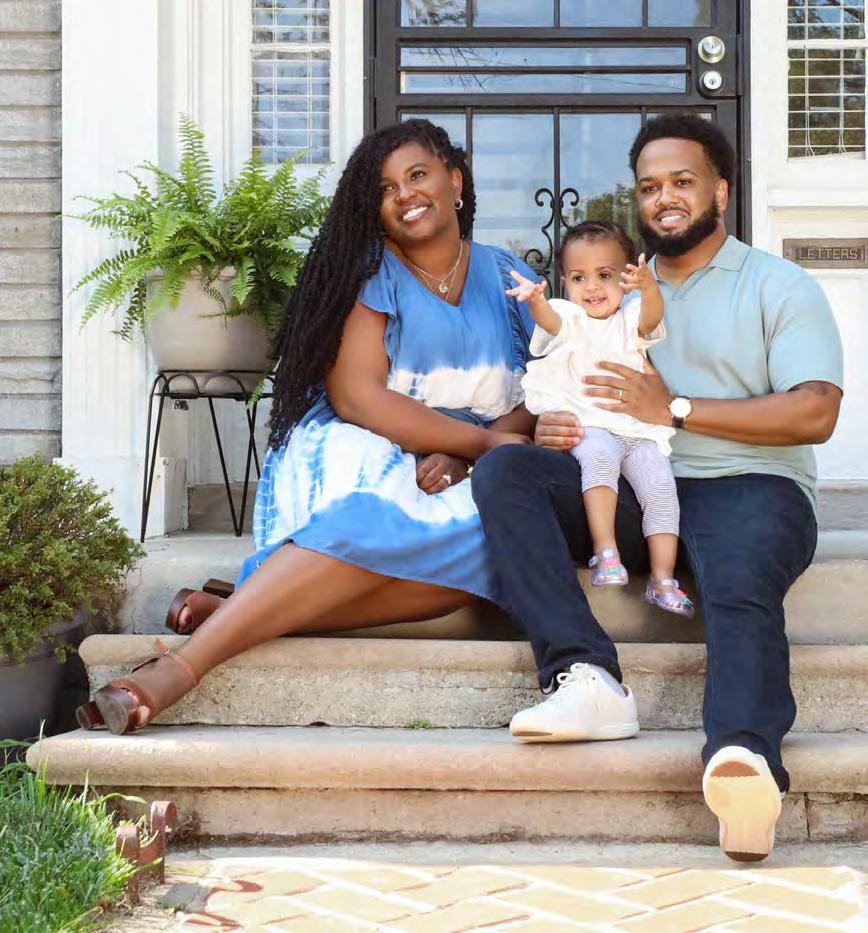

The Black homeownership rate has seen the largest percentage point increase of any racial or ethnic group since the end of 2019, moving from 42.7% to 45.2% in the third quarter of 20221
As the leading large bank lender to African Americans Wells Fargo understands that our strength comes from working together across the country to achieve racial equity in homeownership.
Our close collaboration with prominent African American civil rights organizations, real estate trade groups, and housing counseling agencies helps bring home buying information and resources to more communities.
At Wells Fargo we also continue to optimize our teams to better serve you and help you create a home buying journey that is right for you and your family.
Scan to learn more about our Home Lending Priorities
BY THE COMMUNITY FOUNDATION FOR GREATER ATLANTA
Nonprofit housing developers and builders are invited to apply for WORTH grant funding, an initiative from the Wells Fargo Foundation, to help create and preserve 6,000 homeowners of color by 2025. The Community Foundation for Greater Atlanta is administering the WORTH funds, and the HouseATL Funders Collective and Enterprise Community Partners are assisting with the outreach and application process. Eligible applicants can apply for grant funding to support predevelopment activities and "shovel-ready" housing developments in five core counties: Clayton, Cobb, DeKalb, Fulton and Gwinnett.
Grants vary by affordability level and are eligible for homes priced up to 150% of Area Median Income (AMI). Applications will be accepted on a rolling basis. Apply at https:// bit.ly/3WOdwJc.
Who can apply? Any nonprofit developer or builder of affordable, for-sale housing may apply.

What types of projects are funded? The rehabilitation or new construction of for-sale units of housing at price points affordable to homebuyers of color earning up to 150% AMI and corresponding annual home sales prices based on household size. Both predevelop -
Developing an affordable housing project or community facility? ANDP can help.
ANDP provides loan capital to acquire, construct, or rehabilitate affordable single-family and multifamily homes, with a priority on low- and moderateincome communities.
Some projects have a larger scope and need more resources. In these instances, we partner with Reinvestment Fund to bring even more capital and resources to the table. Reinvestment Fund is one of the nation’s largest nonprofit CDFI loan funds.
Tell us more about your project at www.ANDPI.org/loanfund.




ment and “shovel-ready” projects are eligible for funding.
What are some examples of eligible predevelopment and “shovel-ready” activities?
Housing projects are "shovel-ready" when financing is in place; construction is near completion or breaking ground in the coming months. To verify that your project meets this requirement, we request documentation demonstrating that your project is "shovel-ready.” These documents include a land disturbance permit, building permit or construction loan closing documents.
Construction costs (sometimes called “hard costs”) may include contractor fees, subcontractor fees, exterior shell, interior buildout and finish, plumbing, electrical, mechanical and telecommunication systems.
Access to flexible capital is critical for any housing development, particularly during its pre-development phase to ensure project feasibility. WORTH predevelopment grant funding can cover eligible expenses like appraisal fees, architectural, design, and engineering fees, environmental assessment, legal/insurance fees, marketing studies, title and survey, consultant fees, and marketing expenses.
When is the application deadline? We will consider applications for WORTH grant funding on a rolling basis. We expect to be able to support applicants in 2023, 2024 and potentially beyond.
What are the affordability requirements? All homes must be sold to homebuyers of color earning up to 150% AMI for metro Atlanta. Invest Atlanta posts income limits for the Atlanta-Sandy Springs-Roswell, GA Metropolitan Statistical Area each year. View https://investatlanta.com for more information.
When will I hear a decision? We will do our best to provide responses
to applicants as soon as possible. Most applications will receive a response or an update within 2-5 days. If you are submitting for shovel-ready funding consideration, please include timeline deadlines and other pertinent information in the application.
How much can I apply for? Applicants can apply for up to $5,500 per unit sold to families earning up to 80% AMI and $3,500 per unit sold to families between 80% and 150% AMI.
I see there is a rental housing application for the Funders’ Collective Request for Pipeline. Can I apply for WORTH grant funding for my rental projects?
The WORTH initiative is solely focused on increasing homeownership opportunities for families of color. Rental projects are not eligible for funding under this program. However, you can apply within this Neighborly application portal for an affordable rental project. The HouseATL Funders Collective’s Pipeline Review Committee, which engages public, private and philanthropic funders, will review your application.
When are grant reports due? Grant reports will be due annually throughout the 5-year grant period up until the homes are sold.
What must I report on if I receive funding? Funding is only available for homes sold to income-qualifying homebuyers of color. Grant recipients must report on each home sold, homebuyer race and ethnicity, homebuyer income and home sale price. Additional reporting requirements are outlined in the application portal.
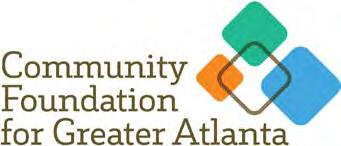
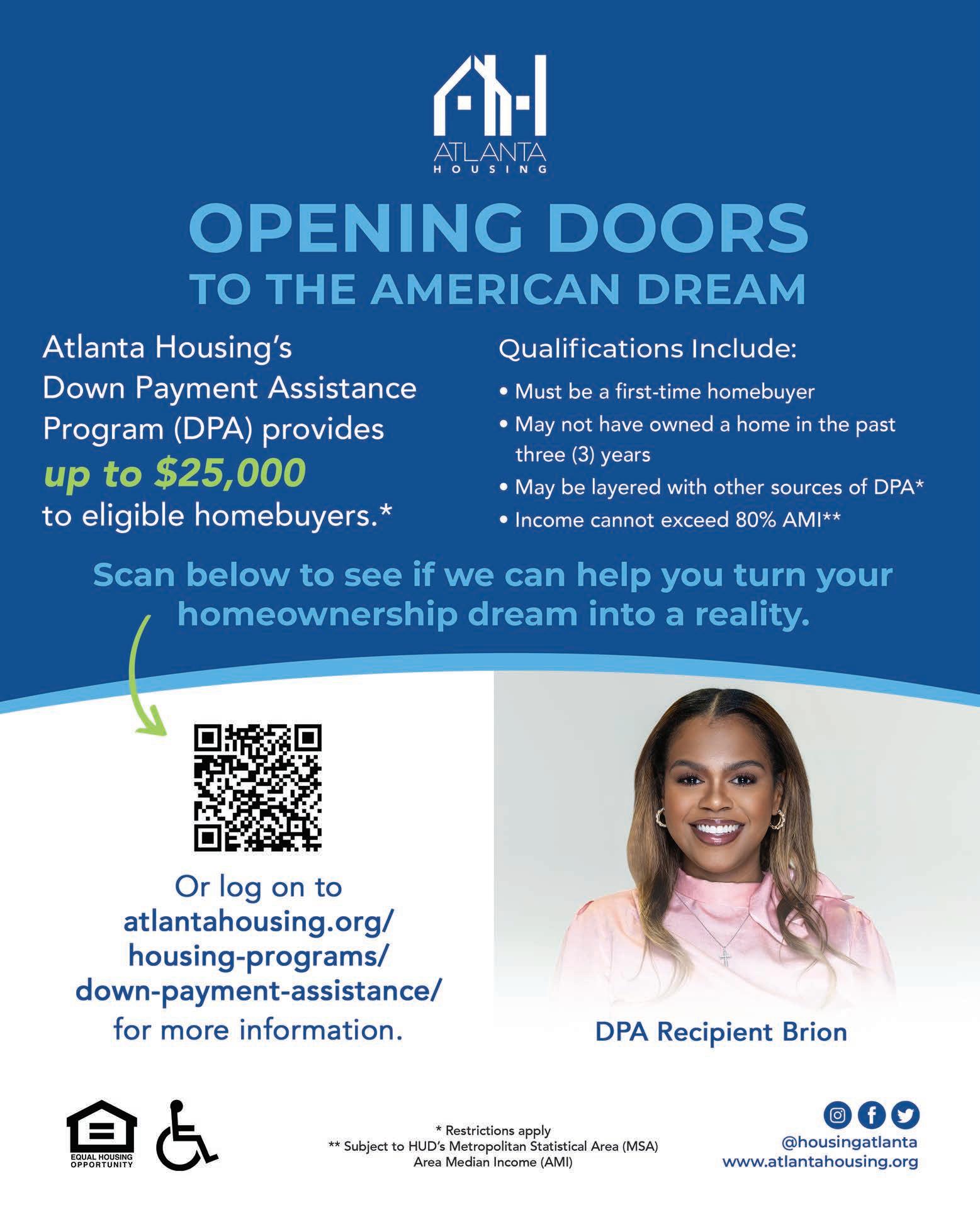

There are many rewards to homeownership. You have a place to call your own, you can leave a legacy to your family and you have a vehicle for building wealth.
However, you may decide that you don’t want to stay in your current house forever. You may choose to move to a bigger house, you may want to relocate to a different city or state or you may simply want to sell your house for a profit.
If you do decide to sell, you want to get as much money for your house as you can. While you can’t control the real estate market, here are some steps you can take to increase the odds that your house will increase in value over time.
Keep the outside looking good. While you may be focused on your kitchen or your family room, the way your home looks on the outside to those who are passing by can affect your house’s worth. Many people are willing to pay more for a house that is attractive to the eye. That also goes for the
houses of your neighbors. Houses in neighborhoods where the grass is cut, bushes are trimmed and yards are neat are likely to command a higher sales price than houses that are unkept and appear to be neglected. By taking the time to beautify your outdoor surroundings, you can increase your home’s overall value.
Get rid of inside clutter. Not only can it help to make the outside look appealing, but it can make a difference in your home’s value if you pay attention to how it looks inside as well. If you’re trying to sell your house, potential buyers could be turned off if they’re walking through and see closets stuffed with bags, clothes and other objects. Some potential buyers may not even realize why they’re turned off; they simply may feel like your house is not the one for them. When your house is free from clutter and your belongings are stored neatly, your home feels more comfortable. For a potential buyer, that extra comfort could be the one thing that drives them toward sealing the deal.
Advocate for stores, restaurants and leisure activities. Homeowners can benefit from Living near a lot of amenities. People like to have things to do. If your neighborhood has restaurants, stores and other
places of leisure, you’re likely to attract buyers that would be willing to pay more money for your home. Neighborhoods near transportation hubs are also likely to attract more buyers. If you already own your home, pay attention to efforts to bring new amenities into your community and support them.
Make renovations that make sense. You may be dreaming about renovating your kitchen, but there is another reason to make the effort: Some renovations can increase the value of your house because potential buyers might be willing to pay more because you made those renovations. Some renovations are more valuable than others. For example, credit scoring company Experian points out that renovating the kitchen and adding hardwood floors are among the changes that can make a big difference.
Make your home energy-efficient. One thing that many buyers take into consideration when choosing a house is energy efficiency. If a house uses energy more efficiently that can translate into lower heating, cooling and maintenance costs for the buyer. There are a number of changes you can make to increase your home’s energy efficiency:
•You can upgrade to a smart thermostat that lets you adjust the temperature from anywhere.
•You can replace any windows where you notice drafts of air coming in.
•You can add insulation to your house. Not only will you enjoy a more comfortable environment by making these changes, you may also be able to get more for your house when it comes time to sell.
Buying your home is only the first part of the journey. You want to make sure your home is kept up so that you can protect your investment and make it grow. If you’re unsure of steps you can take to ensure your house retains and increases value, contact a Homeownership Advisor.
Your home is a key component to your long-term plan for wealth.


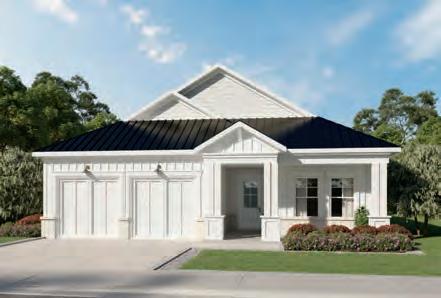
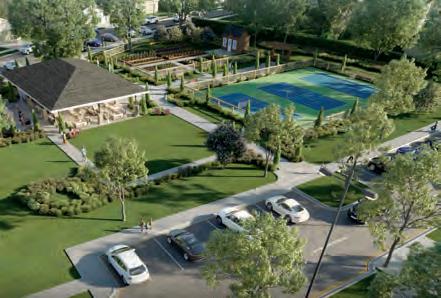
BY ANGELA SWINSON LEEW SPECIAL TO THE INFORMER
For Chuck Bishop the path to homeownership is personal. He didn’t live in a house until he became an adult and bought his own.
As a native of the District of Columbia, he is extremely passionate about helping people get on the path to homeownership.
Bishop, head of Wells Fargo Home Lending Diverse Segments, watched his own mother live in the same apartment for the last 42 years and pay a total of $907,000 in rent. “She paid someone else’s mortgage when she could have growing her own personal assets if she’d fully understood the benefits of homeownership,” Bishop said. “I see firsthand the wealth that's being taken out of our community. My goal is to help more people not have that experience.”
In his role, it is Bishop’s job to expand homeownership opportunities for the underserved communities, which includes people of color and individuals with low to moderate incomes.
“While it sounds really simplistic, it really isn’t just that. We have to do the work. I say that because I have the luxury of working for a company that is really committed to this work,” Bishop said.
As Bishop sees it, homeownership is critical for a lot of reasons. “For one, we know that homeownership is the beginning of the creation of wealth. Most people use their homeownership journey as a passageway to legacy opportunities,” Bishop said adding, that some families aim to pass their property to their heirs. “It is often the biggest purchase that many people make, so it also requires some financial discipline.”
Bishop added that social impacts of homeownership exist, and studies – including re-
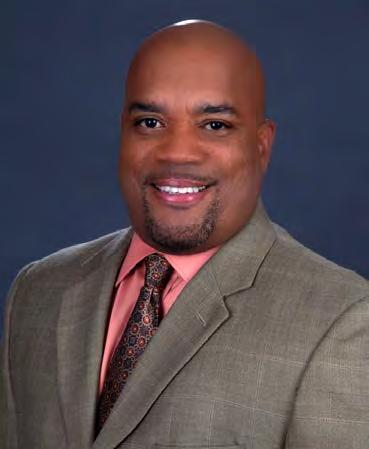
cent analysis by the Minnesota Housing Center – have shown that children who grow up in a home where their parents are homeowners often do better in school, have a higher graduation rate and a lower truancy rate than children of parents who rent. Those children are also less likely to suffer from severe childhood disease and sickness.
Even the small things can make a difference, such as being able to paint walls as you like them and hanging items where you would like them in your home. “I didn’t have such luxuries growing up,” Bishop said.
In his day-to-day work, Bishop can be creative in his how he reaches potential customers. He works to bring an informed approach to the marketplace, such as tailored marketing campaigns and educational outreach. He also works with external stakeholders, such as government entities, ethnic real estate organizations and other industry trades.
Internally, his team engages with sales partners and other departments to do what is nec-
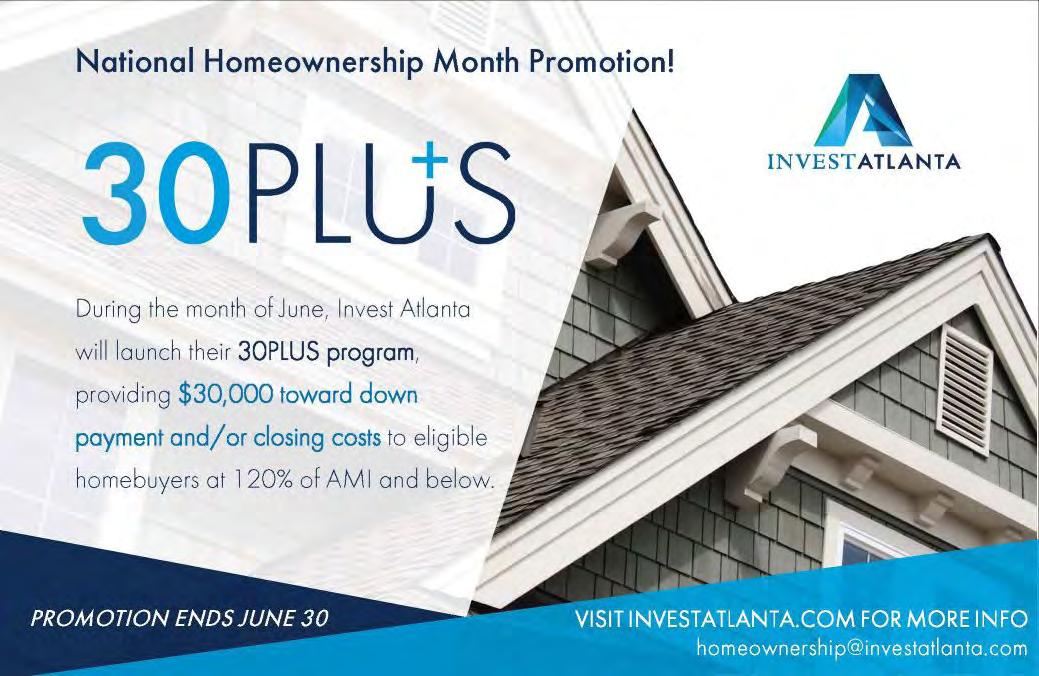
essary to have success in the space that he is in.
Bishop says there is lots of work that needs to be done to close the significant gap between white, non-Hispanic and minority homeownership rates that have already existed for decades. In the black community, the homeownership rate lags that of white, non-Hispanic households by 30 percentage points. “It is as wide as it was when discrimination was legal,” Bishop said of the homeownership gap. “It speaks for the need to do continued work in this space.”
Bishop spoke of the policies that existed in years past that did not allow for equity in homeownership. Some deeds couldn’t be transferred to persons of color and the government would not insure loans in communities that housed black people. “There was purposeful redlining done. When you think about it, the homeownership race was started with unequal opportunities, and they lasted for decades, it’s really hard to catch up today,” Bishop said.
In an effort to overcome that gap, Wells Fargo announced a new initiative in April 2022 that included the development of a Special Purpose Credit Program in which the bank committed a $150 million investment initially aimed at helping eligible Black homeowners with mortgages serviced by the institution to lower their interest rates and reduce monthly mortgage payments without extending their loan term. “We also recognize sustainability. It’s not just about putting people in homes, it’s keeping people in homes who already have them,” Bishop said.
The rate and one-time expenses, such as non-recurring closing costs and the VA funding fee (if applicable), were subsidized by Wells Fargo. More than 2,000 customers have
been helped by the program as of May 2023. Earlier this year, Wells Fargo announced it would launch a Special Purpose Credit Program aimed at helping purchase customers. Other Wells Fargo initiatives include, investing an additional $100 million to advance racial equity in homeownership, including partnering with non-profit organizations and community-focused engagements, deploying additional Home Mortgage Consultants in local minority communities and donating more than $390 million to help address housing affordability in the country since 2019.
The bank, through its foundation, also established the Wealth Opportunities Restored through Homeownership, or WORTH, grant program, a $60 million national effort to address systematic barriers to homeownership for people of color. Wells Fargo also recently announced the expansion of the Dream. Plan. Home.SM closing cost credit program, which provides eligible borrowers with an income at or below 80 percent of the area median income where the property is located up to $5,000 to use toward closing costs in certain markets.
The company also announced Growing Diverse Housing Developers, a $40 million grant initiative focused on expanding the growth and success of real estate developers of color, including Black and Latino-owned firms.
“We are using our resources to empower those who are in the community doing that work,” Bishop said. “I can’t tell you the joy I get out of making a difference in someone’s life when we can create programs and see the tangible effects it has, whether it’s moving the needle in a certain geography for homeownership or from a single family saying, ‘Thank you. We didn’t know we had an opportunity to become homeowners.’”
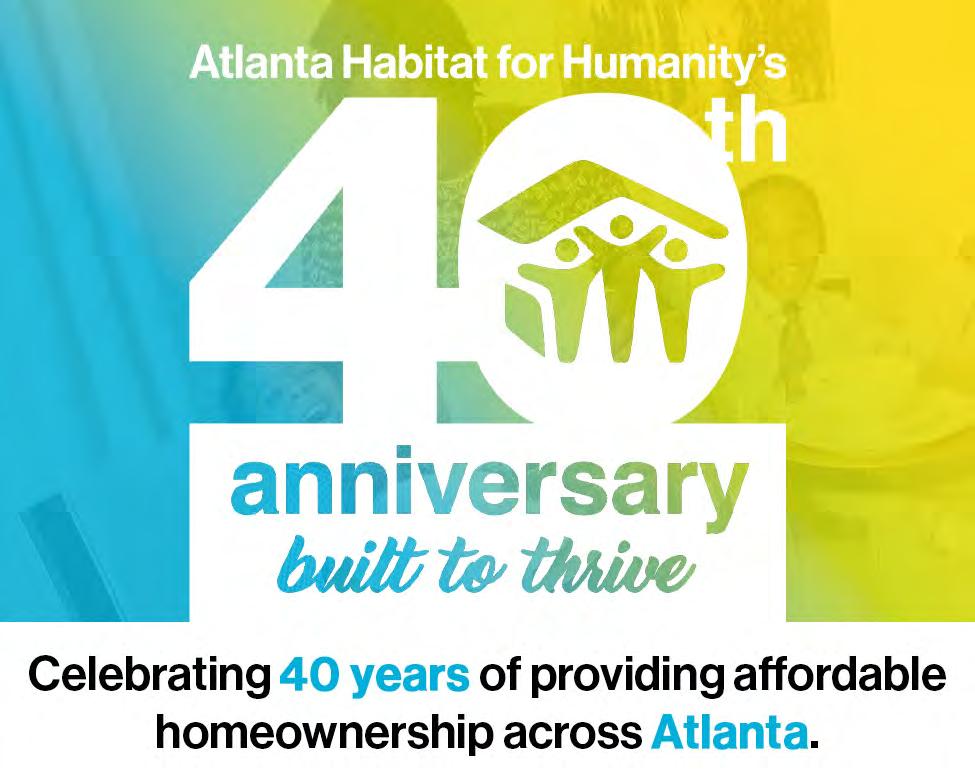
HouseATL is pleased to work alongside the Atlanta Voice and many other partners to close the gap between Black and white homeownership levels. HouseATL is a cross-sector group of civic leaders committed to building the public will for a coordinated housing affordability action plan for Atlanta. The vision of our members is that Atlanta will have a shared, comprehensive set of policies and adequate funding to address housing affordability. Since 2018, our members have worked together to define root causes of the affordable housing challenge, examine the data, look at best practices and engage in thoughtful problem-solving to make concrete recommendations on a path forward.
One of HouseATL’s volunteer driven working groups is focused on promoting homeownership opportunities and on assisting existing homeowners with the preservation of their homes. One of the challenges the Homeownership Working Group has been grappling with is Georgia’s 25% gap between white and Black homeownership levels1. Nationally, the racial gap in homeownership is larger than it was in 1960, when race-based discrimination in homeownership was legal. 2
During our country’s long history of systemic racism, housing was used to segregate races and to economically elevate white families while preventing economic growth for Black families. Federal programs that promote homeownership
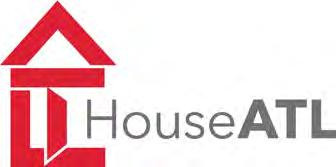
as a path to build wealth, including the mortgage interest deduction, the GI Bill and Federal Housing Administration mortgage insurance, were not equitably available. It wasn’t until after the Fair Housing Act of 1968 that Black people had full legal protection from housing discrimination, but bias persisted in public systems.3 Additionally, in the private sector we have seen how racial bias has contributed to housing opportunity gaps, such as documented differences in appraisals between similar homes owned by white people and Black people and the targeted predatory lending to Black communities prior to the foreclosure crisis.4
HouseATL’s Homeownership Working Group is preparing strategic recommendations to help close the gap in Atlanta. These recommendations will be released this fall, as part of an overall call to action for Atlanta on affordable housing, similar to the 2018 release of recommendations.5 Our members will then be working together both to implement the recommendations and to hold others accountable for progress. For more information about how to get involved, please visit HouseATL’s website at www. houseatl.org.
1 National Association of Realtors - https://cdn.nar.realtor/sites/default/files/documents/2022-snapshot-of-race-and-home-buying-in-the-us-04-26-2022.pdf
2 National Association of Realtors - https://cdn.nar.realtor/sites/default/files/documents/2022-snapshot-of-race-and-home-buying-in-the-us-04-26-2022.pdf
3 Example - https://propertytaxproject.uchicago.edu/
4 The Federal Housing Finance Administration recently released 47 million appraisal reports from 2013-2021 to allow for analysis. Homes in white neighborhoods appraised as much as 3x higher than a similar home in a community of color.
5 Saporta Report - https://saportareport.com/task-force-lays-out-affordability-proposal-at-housing-forum/
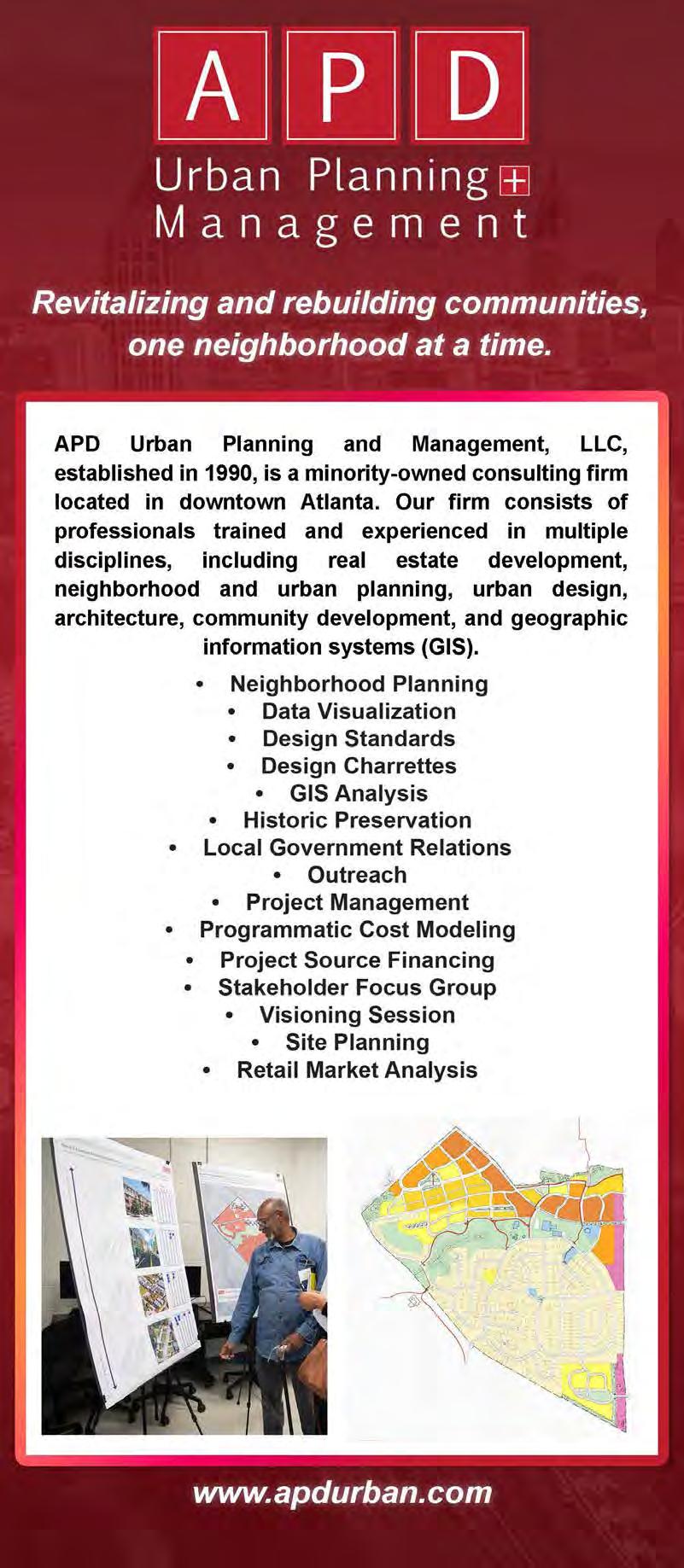
Homeownership is the largest financial undertaking for most Americans and a key to building generational wealth. It can provide a base of security, as building home equity provides you with more financial options in the future. For instance, home equity can be used to pay off debt, increase savings, start a business or invest for the future.
“Buying a home can be exciting, but it can also come with a lot of stress. Learning as much as you can about the homebuying process is the best thing you can do before you start shopping for properties or comparing mortgage options,” said Carol Walton, an Atlanta-based Community Home Lending Advisor with Chase. “If you think you’re ready to take the next step in purchasing a home, please contact me
or one of my colleagues to find out more about the tools, resources and capital available to help make your homeownership dream a reality.”
Below are five first-time homebuyer tips to help financially prepare you for buying and owning a home.
1.Save today for tomorrow’s financial goal.
If you know you want to be a homeowner, don’t wait until you’ve found the house you want to buy –start saving now. There are many expenses along your homebuying journey, including deposits, home inspections, appraisals, down payment and closing costs. Boosting your savings now can help you prepare for expenses that can occur even after you move in, including unplanned maintenance and repair costs. Begin by setting up an automatic transfer to your savings account from each paycheck and try to set aside bonuses and tax refunds.
2. Exercise financially healthy habits.
Your credit score is an important measure of your financial health and gives lenders a good indication of how responsibly you use credit. There are several things you can do to improve your credit score, including using monitoring services offered by your financial partner. Set up alerts to track any new activity, including charges, account openings and credit inquiries.
3. Describe your dream home.
The homebuying process often brings up a lot of questions related to your finances and lifestyle. How are the nearby schools? Is it close enough to work? Is this the right price? The first step to looking for a home is to consider what you truly need in your home. While you may have always dreamed of a two-story house with a yard, take the time to make a list of things you need and want in your new home. Having a clear understanding of your housing needs will help you iden-
tify what’s most important when looking for homes.
4.Buy within your financial comfort zone.
Your true housing cost includes more than your mortgage payment. A good first step is to use a mortgage calculator to estimate your monthly payment, but you’ll need to add in utility costs (e.g., electric, gas, water and sewer), property taxes, homeowners insurance and any other monthly costs. Also consider the cost of home maintenance, including lawncare, unplanned repairs and a possible Homeowners Association fee. Utilize tools like Chase’s affordability calculator to help you determine how much you can comfortably afford based on your income and debt.
5.Research down payment assistance programs.
Down payment assistance programs may be provided locally or even through your mortgage lender. Work with your lending profes-
sional to understand your options and what may be available to you. Chase, for example, offers eligible customers a $5,000 Homebuyer Grant that can be used toward down payment, closing costs, or even to buy down your interest rate. Learn more about this grant and see if a property you’re interested in is eligible at chase.com/ affordable.
There are many resources available to help first-time homebuyers boost their knowledge of homeownership. For more discussions around the homebuying process this podcast, Beginner to Buyer –beginnertobuyer.com – offers conversations with real buyers and expert guests that take listeners through each step of the process –from navigating mortgage rates to preparing for closing.
For more information on home lending financial tools, such as a mortgage calculator, visit chase. com/mortgage.
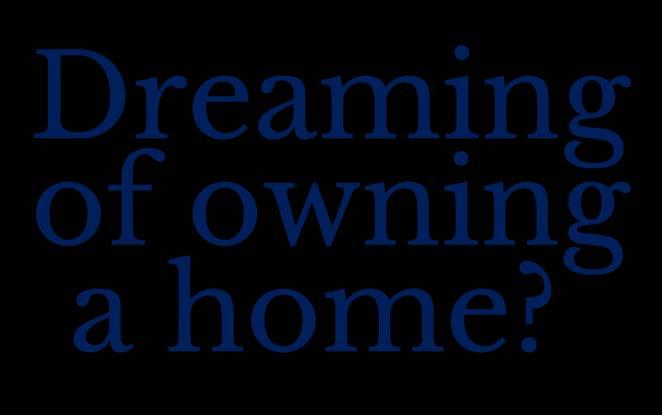








When Black homeownership rates increase, more Black households gain access to a proven way to build personal and intergenerational wealth.
Markets change but that does not mean buying a home is out of reach. At Wells Fargo we can help you navigate the home buying journey during all types of economic cycles.
Our mortgage affordability calculator1 on wellsfargo.com helps you determine which mortgage options best align with your financial goals.
When you are ready to talk, our Home Mortgage Consultants are here to help you create a plan to optimize the benefits of homeownership now and over time.
The Black homeownership rate rose throughout 2022 even in the face of rising mortgage rates, hitting 45.2% in the third quarter - up from 42.7% in 2019. This is the largest point increase of any racial or ethnic group.